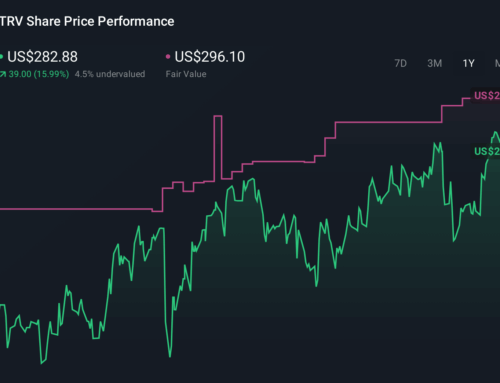New plan would crack down on illegal cannabis in CT. Some say it targets people of color
May 1, 2025

Inspections at three Fairfield smoke shops led to three arrests and the seizure of illegal THC products, including vape pens, edibles, pre-rolls and marijuana. (Courtesy of Fairfield Police Department)
Attorney General William Tong is advocating for the passage of a proposed law that would bolster both civil and criminal laws regarding illegal cannabis sales, but advocates worry the bill is overreaching and would unfairly target people in Black and brown communities.
While residents 21 and over can legally possess and consume cannabis, state and local law enforcement have found in raids on smoke shops across Connecticut illegal cannabis products for sale such as edibles, blunts and marijuana flower, according to the attorney general’s office. Connecticut law requires cannabis products be sold in the regulated market and meet rigorous testing and packaging requirements.
HB 7181 would make it a Class E felony for a cannabis shop to sell synthetic cannabis or sell cannabis and cannabis paraphernalia to anyone under the age of 21, which is punishable by up to three years in prison and/or a $3,500 fine.
The bill would also create a new state Hemp and Cannabis Enforcement Taskforce to enforce “the state’s laws on cannabis and cannabis products,” according to the bill’s analysis. It also would incentivize municipalities to pursue civil actions against “bad actor retailers by enabling cities and towns to retain all civil penalties from illegal cannabis enforcement actions.”
This is a change from current law where penalties are shared with the state.
With much support from several lawmakers concerning the bill, advocates continue to raise concerns about the bill, adding that there is no oversight of the Hemp and Cannabis Taskforce and that the bill will result in the mass incarceration across the state of predominantly Black and brown people for the cultivation and possession of marijuana.
The bill would fine $30,000 for each violation of the law, with landlords being fined $10,000.
Equitable path in the marketplace
Ivelisse Correa-Brown, executive director of Good Trouble Advocacy and vice president of BLM 860, said there is no equitable pathway into the cannabis market as a Black or brown business owner in a disproportionately impacted area unless “you team up with a billionaire.”
“There should be an equitable path to the marketplace without kicking in people’s doors,” she said. “As the law is written in Connecticut, there is no dispensary in Connecticut owned by someone that grew up in a Connecticut inner city and as written they will never solely own one.”
Correa-Brown said Tong continues to push the war on drugs, which began in 1971 and brought strict minimum sentences for drug possession and sales. Though the campaign failed to eradicate drug use, it did put thousands of Black and Latino men in prison.
According to a Human Rights Watch fact sheet on the war on drugs, five times as many white people use drugs as Black people, yet “nationwide, Black men are sent to state prison on drug charges at 13 times the rate of white men” and Black people “constitute between 80 and 90 percent of all people sent to prison on drug charges.”
Correa-Brown also cited concerns that speaking out on the issue has triggered retaliation, citing an article in the CT Mirror on March 12 where “the state Department of Consumer Protection apologized … for conducting what appeared to be a retaliatory inspection at a cannabis cultivator, a day after the chief executive offered testimony at the General Assembly criticizing DCP testing protocols on recreational marijuana.”
In an email to the Courant, Tong asserted that “legal cannabis is not a free-for-all.
“Businesses who sell untested, unregulated cannabis outside the free market are breaking the law and should be held accountable,” he said. “In addition to unsafe, untested products, we routinely find sales to minors, other controlled substances, labor violations, as well as flagrant violations of existing court orders.”
He went on further to state that the “Task Force formalizes the existing collaboration that already exists across state and local law enforcement – as evidenced by recent raids in Stamford and Danbury – to protect public safety.”
Kaitlyn Krasselt, director of communications for the Department of Consumer Protection said in a statement that DCP has been clear.
“Everyone should feel safe and comfortable providing testimony without fear of retribution or retaliation, whether they are a member of the general public or a licensee, and regardless of if that testimony is critical of an agency policy or regulation,” she said. “We encourage everyone to participate in the legislative process, which is a fundamental right of democracy.”
East Hartford Mayor Connor S. Martin said in a statement that he is seeing instances of “illegal cannabis sales and distribution, either from smoke shops, convenience stores or elsewhere.”
He added that the town has already enacted multiple measures to combat the unauthorized sale of cannabis, including new zoning regulations, fines and the ability to take businesses found to be operating illicit activities to superior court to shut them down permanently.
“We are doing our best to open our doors to a growing, regulated industry and appreciate additional tools and enforcement measures to hold businesses who conduct illegal activity accountable,” he said.
Sen. Saud Anwar, Senate chair of the Public Health Committee, said in a statement that illegal cannabis sales on the black market “pose a direct threat to public health.
“If people are going to use cannabis, our state provides safely grown and cultivated products that have been tested and verified, as compared to the potential for synthetic, unsafe or altered substances on the street – especially when those products could be accessed by underage users, worsening health impacts,” he said.
Rep. Greg Howard, R-Stonington, said when the legislature passed the law allowing the use of marijuana, it said that people under 21 couldn’t possess cannabis.
“Now we have bad actors that are allowing kids access to this and that is why we have to enforce our laws,” he alleged. “We have these laws for a reason.”
Christina Capitan, cofounder of Ct CannaWarriors, said “the current infrastructure of CT medical cannabis program as well as the infrastructure of the adult use cannabis program have really fallen short of meeting the needs of Connecticut residents whether it be accessibility, affordability or availability,” she said. “Part of the reason why people are going out of that infrastructure is to obtain what they need … if they weren’t falling short there would be no demand for these outside sources.”
She added historically more Black and brown communities have had increased enforcement over white communities and suburban communities for cannabis arrests and things of that nature.
“We don’t see that changing as we move forward,” she said. “If we continue to move forward with the task force I feel it will continue to predominately affect Black and brown communities.”
“It is concerning to see William Tong coming so hard at the cannabis community, at cannabis enforcement, and at the same time being openly liberal on other issues,” she said.
Correa-Brown said there is concern that Black and brown people may be getting their homes raided for being slightly over the plant count.
DeVaughn Ward, a civil rights attorney and correction ombudsman for the state, also raised concerns about the bill.
“While the aim of preventing cannabis use of minors is a laudable goal and an important goal, the approach in this bill is heavy handed and likely to lead to continued prosecution of folks from those communities that were impacted by the war on drugs,” he said.
The Office of Fiscal Analysis reports a $1.1 million fiscal impact. It is unclear what will happen to the bill moving forward in the last days of the session.
Correa-Brown said her son, a Black teenager is the “demographic that lawmakers claim to want to protect.
“The state of Connecticut does not need to incarcerate Black men in the name of my son,” she said.
Search
RECENT PRESS RELEASES
Related Post







